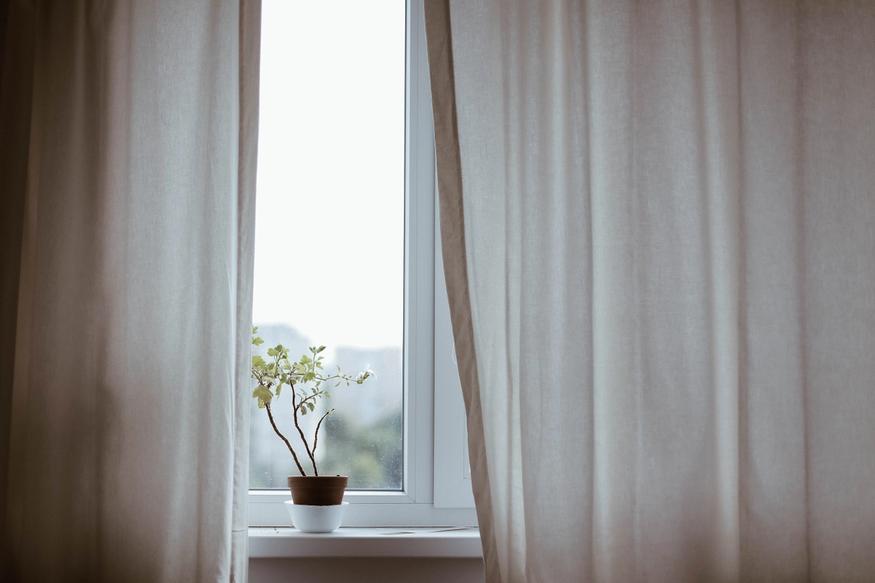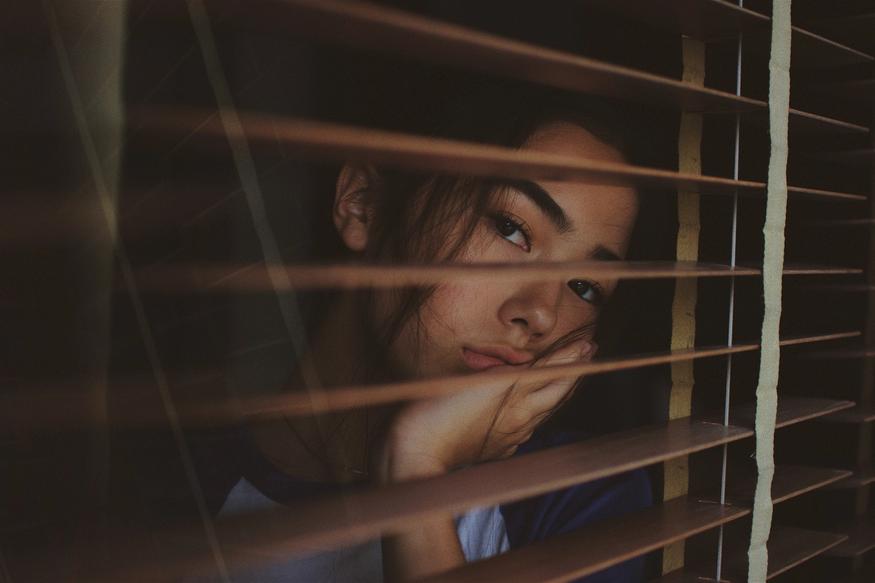Do You Suffer From Summertime Sadness?
Published on 7/20/2020
“I got that summertime, summertime sadness
Su-su-summertime, summertime sadness” (Summertime Sadness, Lana Del Rey)
It has taken me years to admit it, but finally I will:
I hate summer.
That is a phrase not readily accepted in our society, considered to be against the norm we force down people's throats. But this is my truth. Every summer, my depression is worse than any other time of year. I detest summer, I eagerly await its end, and I feel more of an anomaly than usual. I always felt alone in my dislike for summer, until finally I found someone else who agreed with my sentiments. Someone else who found that their mental health issues seem to worsen during this sweaty period.
And so I wondered, is there more to this? Perhaps Seasonal Affective Disorder isn’t just reserved for frosty winters, or perhaps even general depression like mine has reasons for worsening during these warm months. Maybe, just maybe, there’s more people out there suffering from Summertime Sadness like I am.

What is Seasonal Affective Disorder?
First recognised in 1984 by Rosenthal et al., Seasonal Affective Disorder (SAD) accounts for an estimated 10-20% of recurrent cases of depression. It is more common in young adults and women. It is recognised in the DSM-V as depression following a seasonal pattern, with the period beginning and ending during a specific season every year. To qualify, there must be full remittance during other seasons for at least two years, and have more seasons with it than without it over a lifetime. SAD usually goes unreported, and thus undiagnosed.
You may have heard of SAD before, but most likely only in the content of winter. It even becomes a bit of a joke, like people claiming they’re so depressed or want to kill themselves as if that is still humorous in 2020. But what many don’t realise is:
1. SAD is a real disorder.
2. SAD can happen in summer as well!
Many think that SAD in winter is simply about low vitamin D, a myth that is probably an attempt to fuel the purchase of pharmaceuticals or special lamps. But SAD can also be influenced by a variety of environmental causes.
What can cause SAD in summer?
1. Individuals with SAD have been found to have a higher sensory processing sensitivity. This makes them more vulnerable to environmental factors, including those taking place in summertime.
2. For example, heat and humidity may influence summertime SAD. Those having an issue with thermoregulation can thus be triggered, and struggle with the key neurotransmitters of mood regulation (norepinephrine, dopamine and serotonin).
3. The increased length of the day, and thus perhaps an excess of light. A study found a correlation between suicide rates and longer duration of sunlight - surprising, right?
4. Allergies! Summer SAD typically begins in late spring when pollen counts begin to increase, this cause cannot be contributed to SAD.
Why can we feel more depressed in summer without SAD?
So I don’t have Seasonal Affective Disorder, as my depression is persistent throughout the year. However, I do find that every summer it feels worse. People always joke about being depressed in winter, and yeah, I am, but I’m more depressed in summer. I always felt like a sore thumb because of this, as if I’m alone in this error. So I decided to break it down, to work out why I feel more depressed in summer, even though I don’t have SAD.
1. Breaking routines
A lot of us cope with our mental health or mental illness through carefully placed routines. For example, I manage to keep my eating disorder at bay through a set exercise regime and healthy breakfasts. This allows me to not fixate on my weight, and enjoy treats or unplanned meals. But in summer, we often find ourselves without these carefully set routines. Perhaps because we go on vacation, and are thus without a gym and eating out more. You’re in an unfamiliar setting, which can trigger anxiety or feelings of depression.
But even if you stay home, your routine can be affected by summer. Being without school or your job for a while, and thus no restrictions on your day. It can be daunting, to have so much time ahead of you. It can be tempting to crawl back to bed, to hide under a blanket.
The loss of a routine feels like losing your footing on a staircase, or falling within a dream. Your control is gone, and with it your coping.
2. Out of the house
Not just for holidays, but in general we spend more time outside during summer. For many of us dealing with mental health issues, we create our home to be our oasis. Our safe place, away from the world. But to leave it so much can have us feeling isolated, and cause anxiety levels to be higher than usual.
Often, leaving the house in summer will be for social purposes. Being with people can often help your mental health, allow you to get out of your own head and not overthink. But extended social periods can do more harm than good, especially those with introverted tendencies. It can leave us feeling depleted, and thereby more anxious and low. Unable to fill up our own reserve as we gave so much out. We have less alone time in summer, and our mental health pays for it.
3. Insecurities
Warm summers mean wearing less layers, and this can be scary for a lot of us. Even if you haven’t suffered from an eating disorder, you may feel exposed quickly or insecure about your figure. Such insecurities can haunt us, and ruin seemingly nice moments. There’s a lot of talk about a winter body and a summer body, and so we enter summer feeling like the pressure has been turned up.
But in terms of non-body insecurities, I find summer daunting because of the more frequent nights out or social gatherings. I get insecure about my personality, what I have to offer, my minimal conversation skills. Summer just feels like you’re on a display, and it’s warm and sweaty, and you can’t help but feel like everyone is staring at you, and then guilt yourself for being so egocentric.
4. The hype
I have this with New Year’s Eve as well. I don’t like it, I don’t enjoy it. NYE and summer are both so hyped up, to be the best thing ever. So if you don’t feel good, it feels like you’re doing it wrong. Like you’re missing out on something. September looms closer and you’re aware of how little you have to say for this summer, the lack of memories to boast about. Summer is meant to be the BEST, and right now it feels like the worst, and that makes me feel even worse.
5. Contrast to others
And with that is the fact that everyone else seems to love summer. People always call it their favourite season, which makes me feel like such an anomaly for not liking it. Why am I different yet again? People are counting down the days, ready to pull out their shorts and floppy sun hat, and I’m dreading it as soon as the first bead of sweat trickles down my neck. I am anxiously waiting for Autumn (my favourite season, simply because then it is over). It just highlights how different introverts or those with poor mental health are yet again. I become the black sheep once more.
It’s okay to have summertime sadness, whether that is due to SAD, due to mental illness or simply because you don’t like summer. It’s like our aversion to introversion, we’re taught that everyone should love summer and it's strange if they don’t. But it is one out of four seasons, so you’re allowed to prefer a different one. People love sunshine, good for them. But I love rain pattering against my window, and I love feeling safe in a thick coat as I walk down the less crowded streets. And that’s not wrong either. If everyone loved summer, the other seasons would feel too left out.
What’s your favourite season?
Featured posts

Fleur
Welcome to Symptoms of Living! A place where I like to relieve myself of the barrage of thoughts and ideas filling my mind. Here I'll take a look at various topics, from books to BPD, series to self-harm, there's nothing that we can't, and shouldn't, talk about.
Having struggled with mental illness since the age of 15, one of the hardest parts was how alone I felt in it. While mental illness is beginning to be discussed more openly, and featured in the media, I still think there is room for improvement. So whether it is mental illness or merely mental health, a bad day or a bad year, let's make this a place to approach it and strip it back. Everyone has their own symptoms of living, and you certainly won't be the only one with it.
Would you like to receive my top monthly articles right to your inbox?
For any comments/questions/enquiries, please get in touch at:
info@byfleurine.com
I'd love to hear from you!